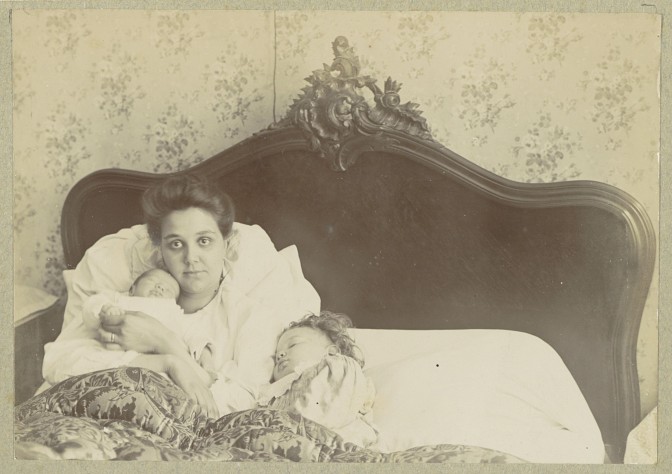Traditionally, many Dutch children were named after family members: grandparents, deceased siblings, deceased spouses of their parents, or aunts and uncles. Though some children were named after their parents, this is rather rare.
One instance where it is common for a child to be named after their parent is when the parent had died. For example, if a father died when the mother was pregnant, a son would often be given the father’s name, and a girl might receive a variation of the father’s name (think Hendrik > Hendrika). If the mother died in childbirth, her daughter might be given her name, and a son may be given a variation of her name. This is no rule, and there are many exceptions, but it is something to watch out for.
For more information about naming patterns, read 8 Dutch naming patterns to watch out for.

Mother shortly after giving birth. Unknown photographer, circa 1885. Credits: Rijksmuseum

